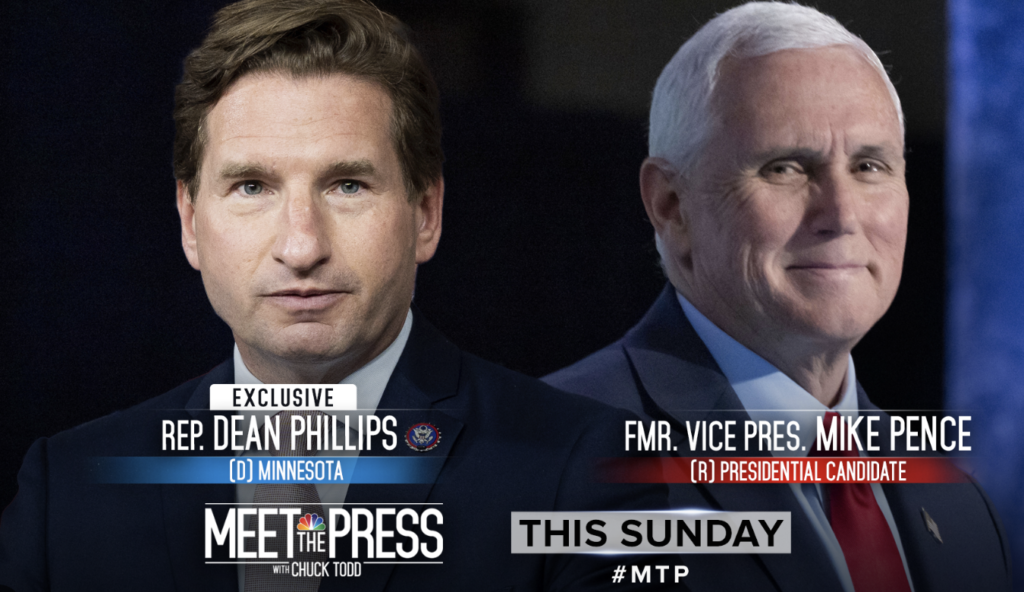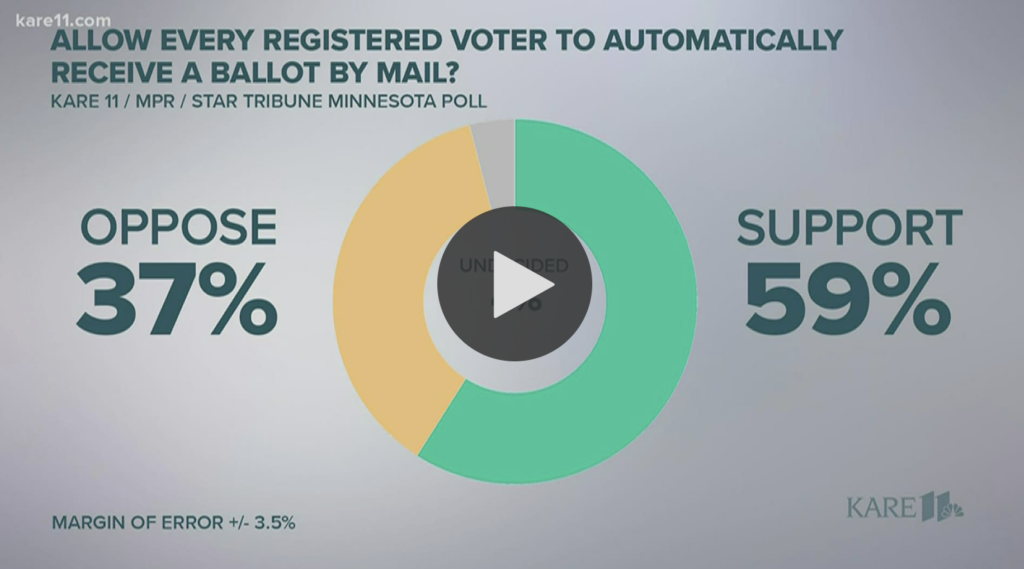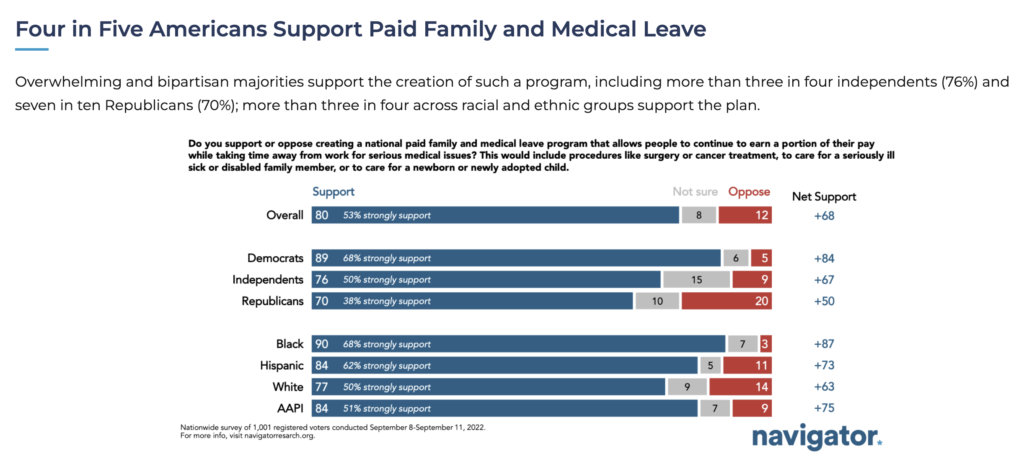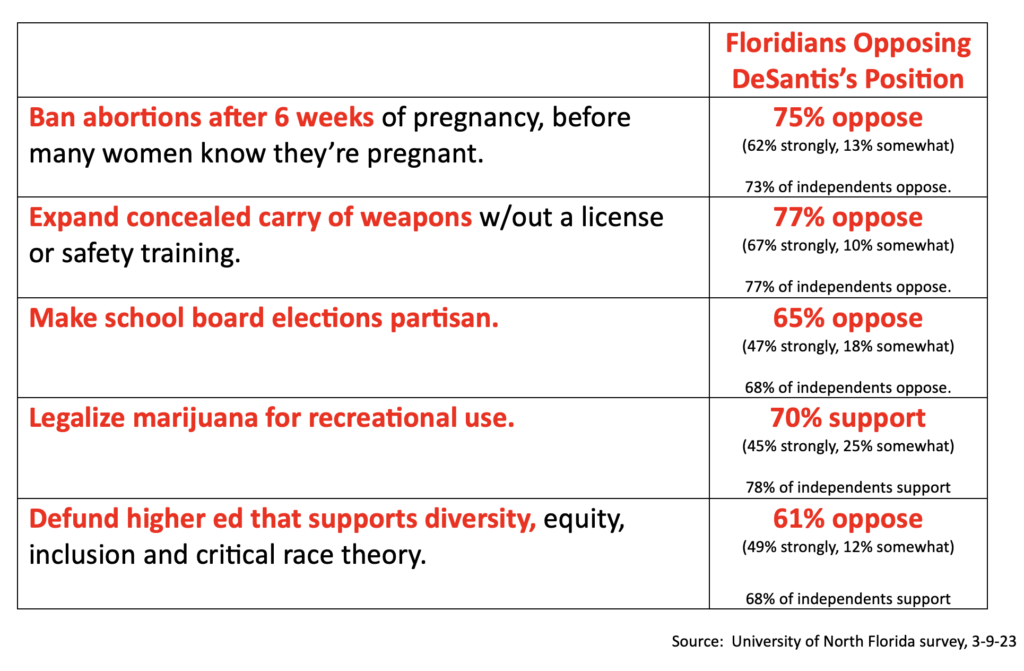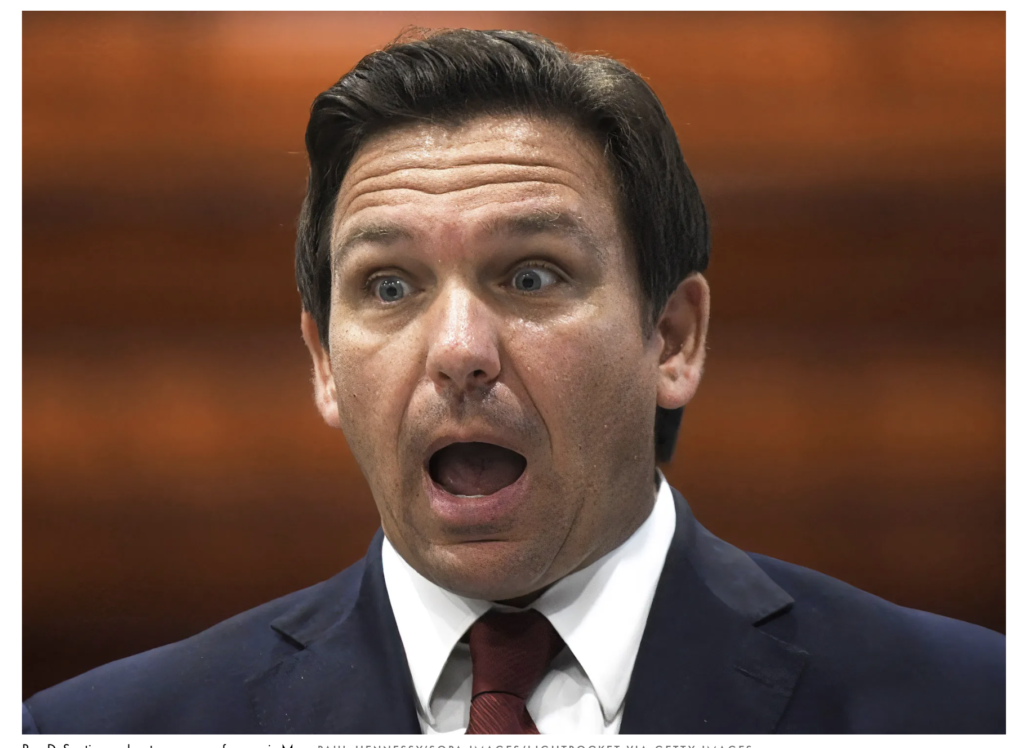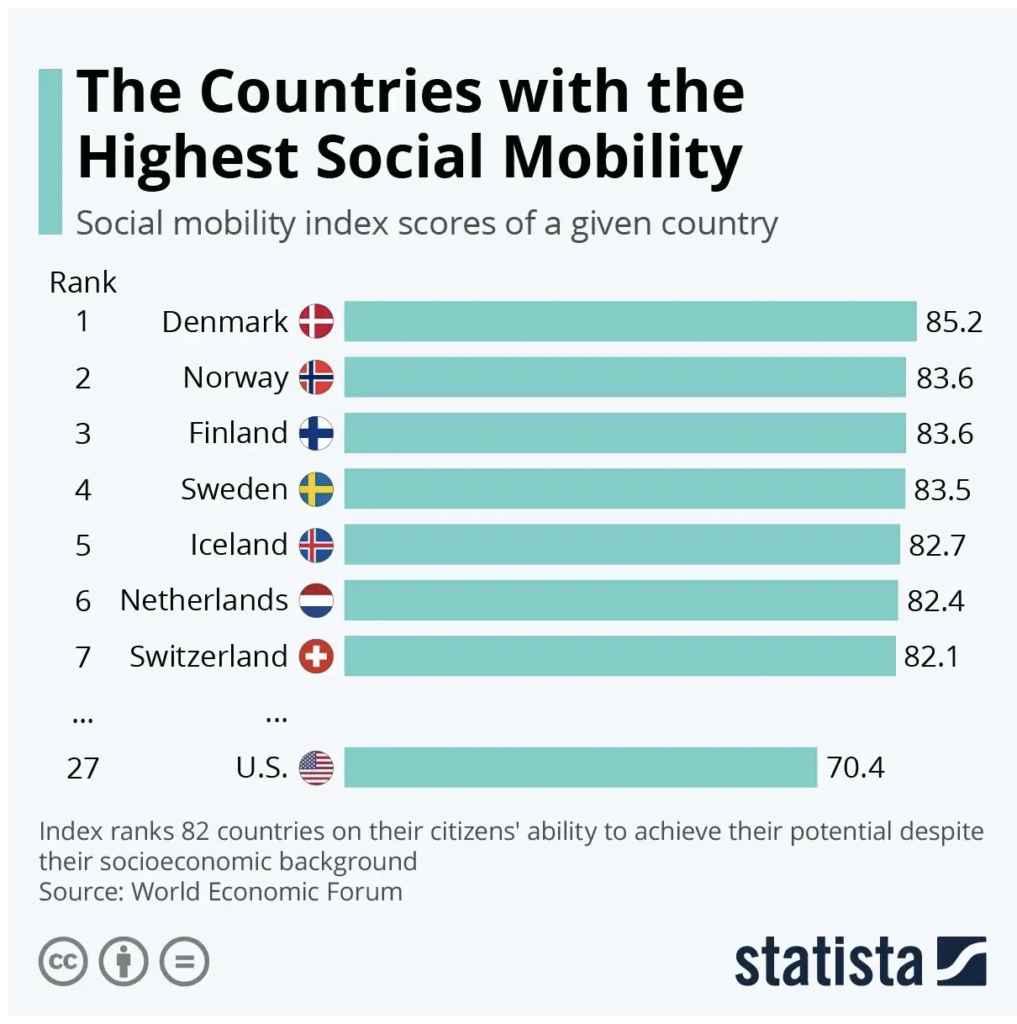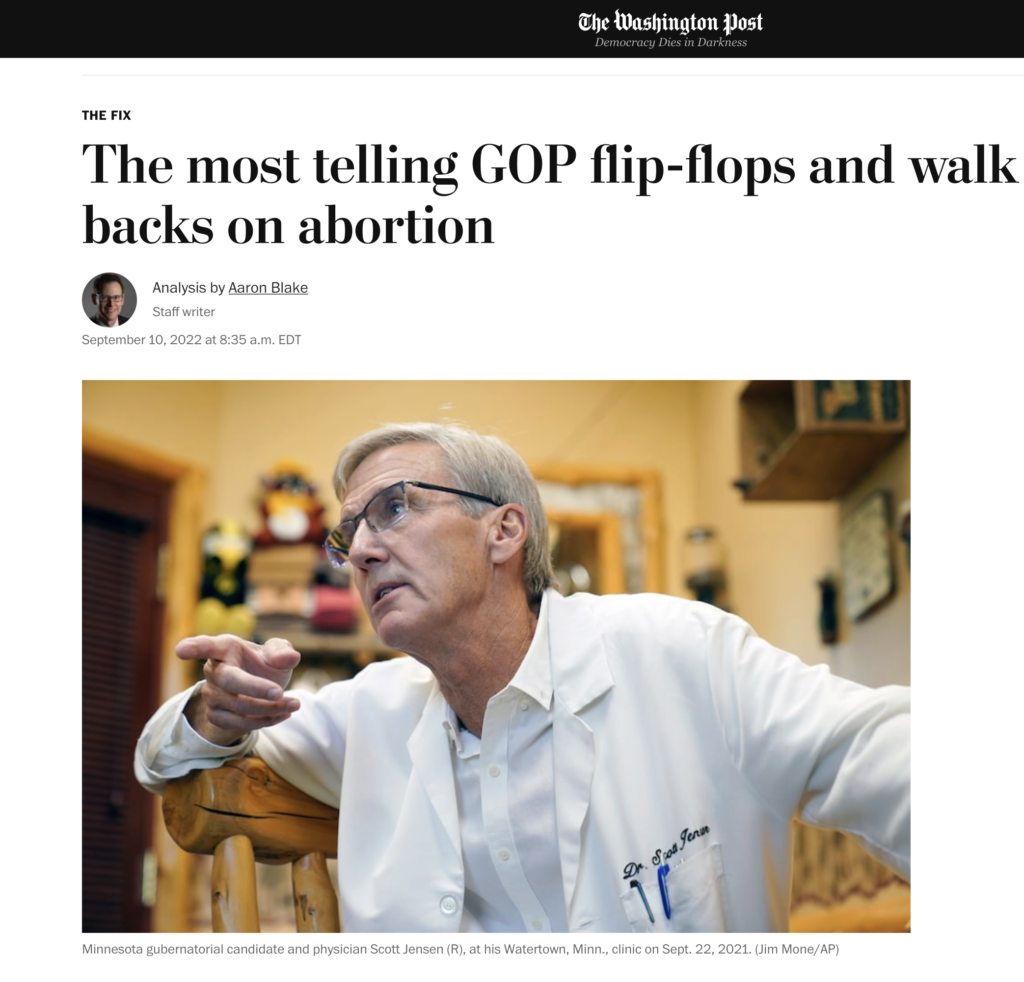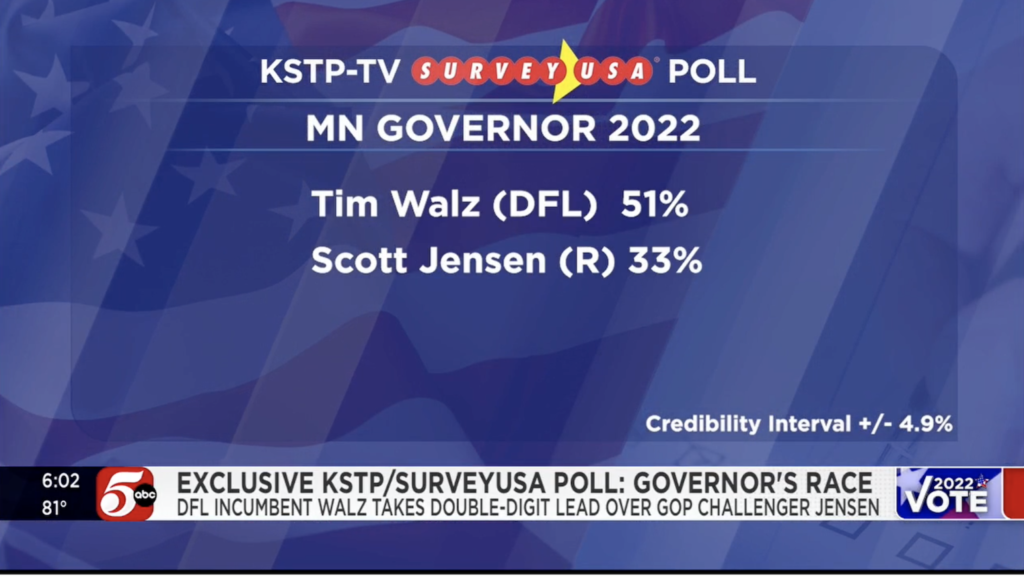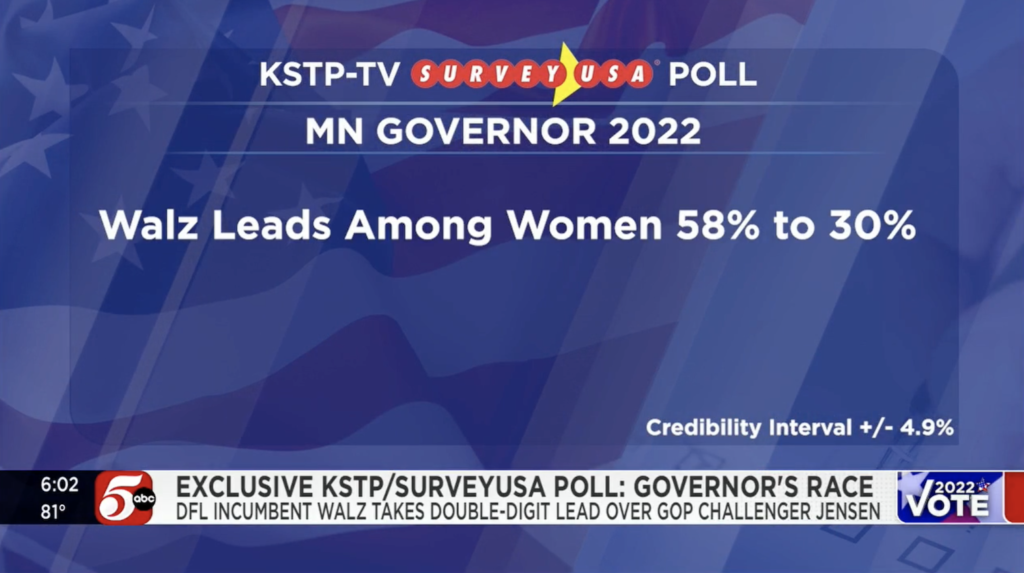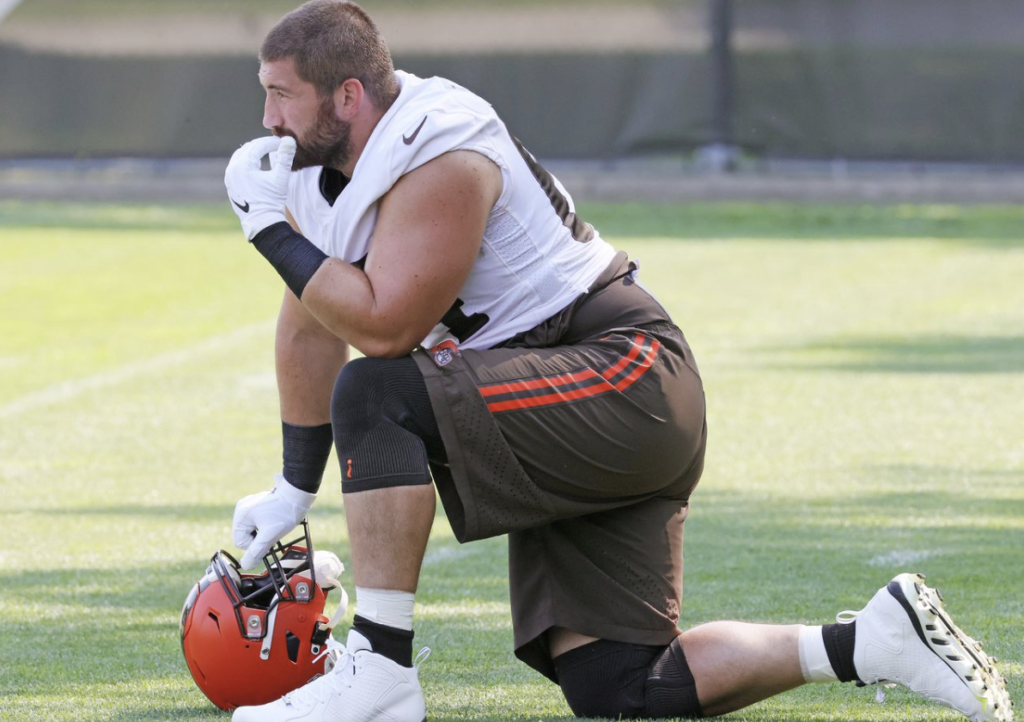Politically speaking, Trump has a lot going for him. Very early in the primary season, he is the runaway front-runner for the GOP nomination. Wrapping this up early will save him a lot of money and allow him to aim resources at Biden, instead of at his fellow Republicans.
He is battle-hardened. He has already endured dozens of serious scandals that would have ended most candidacies – two impeachments, 91 criminal indictments, a videotaped incitement of insurrection, the “grab em by the” lady bits tape, dozens of embarrassing gaffes, a porn star hush money conviction, a sexual abuse conviction, popular vote losses in 2016, 2020, 2022, and 2023, etc.
Despite all of those calamities and more, Trump somehow still has around 35-ish percent of voters consistently enthusiastic about him and another 15-ish percent of voters who currently seem willing to hold their noses and vote for him.

After all of that, it’s difficult to imagine what could cause Trump to lose much electoral ground in the next 10 months.
Moreover, Trump has the good fortune to be running against a politically wounded, gaffe-prone octogenarian who has had to endure post-pandemic economic headwinds throughout his term.
Add to that the very real possibility of a third-party candidate siphoning off anti-Trump voters from Biden, and it can’t be denied that Trump has one hell of a strong political hand. At this stage, he should be considered the favorite to win in November.
But if I were on Team Trump, these are five challenges that especially would concern me.
Surviving a Conviction(s)
A major conviction, especially on the insurrection-related charges, could weaken Trump with a block of undecided voters. The Washington Post recently reported:
“…election-day surveys showed 31 percent of Iowa caucus-goers and 42 percent of New Hampshire GOP primary voters said Trump wouldn’t be fit to serve as president if he’s convicted of a crime.
Those are big scary numbers, but I would add two caveats to them: First, with an army of Trump lawyers trying everything possible to delay proceedings, it’s going to be very challenging for prosecutors to get a conviction and subsequent appeals completed before the November election.
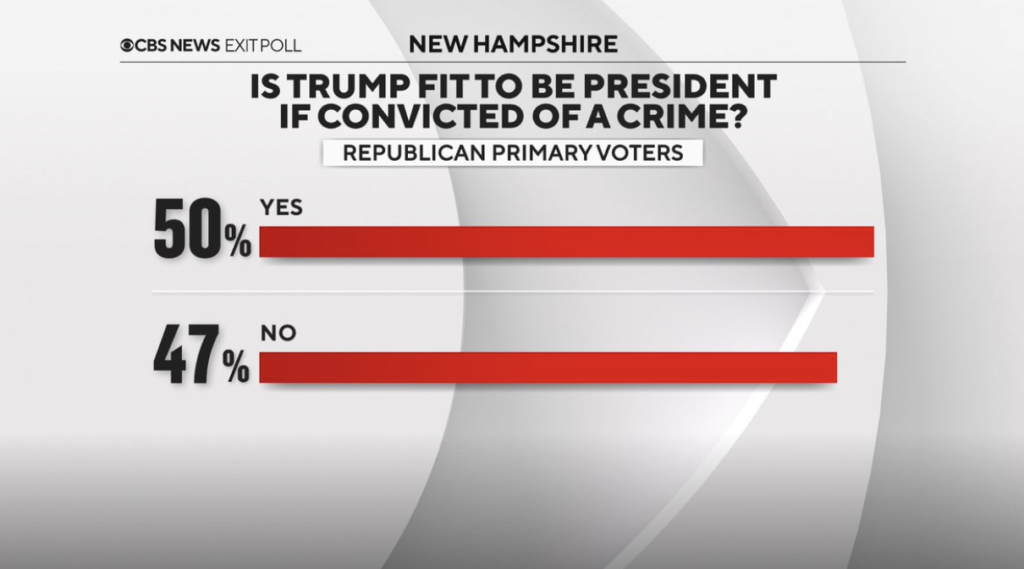
Second, I’d be surprised if even one-quarter of those people who today say a conviction would be a deal breaker for them would actually abandon Trump. After hearing Trump and his supporters endlessly claim how the conviction(s) was the product of a politically motivated witch hunt, I think many cynics will agree with that cynical argument.
Still, if even a relatively small fraction of that large block of conviction-sensitive voters abandon Trump because of a conviction(s), that could be decisive in a close general election.
Moving Beyond “The Base”
Also, Trump is currently weak with swing voters. While much is made of how loyal Trump’s base is, once the primaries are over the MAGA base is not anywhere near large enough to give Trump a general election win. He needs to win over the non-affiliated independents, soft Democrats, and soft Republicans who will decide this election. Like Biden, Trump has a lot of work to do to win over those voters.
Trump should be very worried about his poor showing with independents so far. MSNBC’s data geek Steve Kornacki noted a remarkable 71-point difference between how New Hampshire independents voted for Haley by 21 points compared to how the state’s Republicans voted for Trump by 50 points.
Fox News exit polls in New Hampshire found that 35% of GOP vote primary participants, many of whom were independents, indicated they would be so dissatisfied if Trump won the Republican nomination that they wouldn’t vote for him.
Again, if even a fraction of that holds in November, that could seriously hurt Trump’s chances in battleground states.
The Economy, Stupid
Then there is the economy. The state of the economy has traditionally been very important to swing voters – independents, soft Republicans, and soft Democrats. Up until now, that has helped Trump pull ahead in the polls.
But as pandemic-related economic challenges have eased, the economy under Biden has very quietly gotten robust – historically low unemployment, consistent economic growth, much lower inflation than earlier, interest rate decreases likely on the way, a historic boom for the stock market/retirement funds, wage growth outpacing inflation, and, at long last, increasing consumer confidence. The United States under Biden has the strongest post-pandemic economic recovery in the world.

Even if that good economic news only neutralizes the enormous past advantage Trump enjoyed on this issue, rather than turning it into a strength for Biden, that could help Biden win over persuadable swing voters.
Doh! Roe!
Trump also continues to face tricky political winds related to abortion rights. Surveys show that two-thirds of Americans think the overturning of the Roe v. Wade decision that kept abortion legal and safe was a mistake. Meanwhile, Trump is out there telling anyone who will listen that “I’m the one who got rid of Roe v. Wade.” That’s music to Democrats’ ears.

The 2022 elections showed how much Republicans’ post-Dobbs abortion bans have hurt Republicans, particularly in suburban battlegrounds where battleground state elections are often decided.
Now congressional Republicans are promising a national abortion ban. That just adds fuel to this fire.
That would also worry me a lot if I was a Trump supporter.
Trump Being Trump
Getting voted out of the White House and kicked off Twitter has made Trump’s outrageous behavior a bit less visible than it was when he had the presidential bully pulpit. To the extent that Trump has been visible, a lot of the news coverage has been focused on how resilient he remains with the relatively narrow band of Americans who make up his political base. That success appealing to Republicans has made Trump look, up until now, relatively strong and normal.
But in a general election campaign, Trump’s steady stream of outrageous comments and actions will once again be more visible. Trump can’t keep himself from sounding childish, bigoted, incoherent, unstable, and dictatorial. That persona led Trump to lose the popular vote by 3 million in 2016 and 7 million in 2020.

Highly visible “Trump being Trump” news coverage is great for Trump when the task at hand is appealing to the Republican base. But a constant stream of Trump outrageousness doesn’t always help him with more moderate swing voters. Moreover, his undisciplined stream-of-conscious blathering keeps him from repeating the most persuasive anti-Biden messages and pro-Republican messages.
Again, Trump is far from politically weak. He is rightfully favored to win in November. But if I were a Trump operative, these are five things that would certainly keep me up at night.





